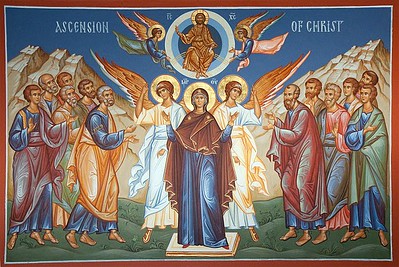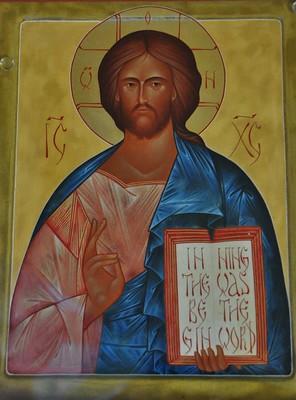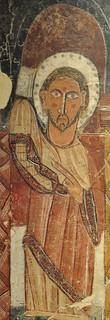
And it happened, while Apollos was at Corinth, that Paul, having passed through the upper regions, came to Ephesus. And finding some disciples he said to them, “Did you receive the Holy Spirit when you believed?” So they said to him, “We have not so much as heard whether there is a Holy Spirit.” And he said to them, “Into what then were you baptized?” So they said, “Into John’s baptism.” Then Paul said, “John indeed baptized with a baptism of repentance, saying to the people that they should believe on Him who would come after him, that is, on Christ Jesus.” When they heard this, they were baptized in the name of the Lord Jesus. And when Paul had laid hands on them, the Holy Spirit came upon them, and they spoke with tongues and prophesied. Now the men were about twelve in all. And he went into the synagogue and spoke boldly for three months, reasoning and persuading concerning the things of the kingdom of God. (Acts 19:1-8)
Theodoret of Cyrus, 5th Century theologian and bishop, noted that while baptism was known and practiced by Jews even before the time of Christ, Christianity held a very particular theology of baptism that was not shared by the Jews.
“Now, the apostle said this to teach the believers from Jews not to think all-holy baptism is like the Jewish baptisms: they did not wash away sins, but cleansed the body of apparent defilement – hence they were applied many times and frequently. This baptism of ours, on the contrary, is one only, for the reason that it involves the type of the saving passion and resurrection, and prefigures for us the resurrection to come.” ( COMMENTARY ON THE LETTERS OF ST PAUL Vol II, p 159)

We can get a sense of the theological meaning of Christian baptism in a more recent writing. It is not an exaggeration to say that what is presented here is still but a drop from the ocean which is our theology of baptism.
“We can see a concrete example of … the importance of the material world in Christian worship, in the rite of baptism, the ‘mystery’ of formal initiation into the Church. All too often, the many layers of meaning in this rite have been reduced to superstition. Baptism is not some quaint, legalistic ceremony that magically washes away the stain of an original sinfulness. This idea robs it of any real power to challenge and change the tired status quo of the human condition. It also colossally misses the point. Baptism is much more profound than a simple purification ceremony; it vividly symbolizes each person’s death and resurrection by joining them with Christ’s. It is an ancient, dramatic sign of radical change that initiates the baptized into the believing community, a public pledge of a new and deeper life. It is a rite of personal passage, a passover and entry into this new ‘way.’ The words of the service make this clear.

When a priest blesses the baptismal water at the beginning of the service, he affirms the original purpose of the world. Creation is good, and is to be used for the glory of God, which creation proclaims by its very existence. When he breathes on the water, invoking the Spirit of God that hovered over the original waters of creation, the priest draws our attention back to what ‘water’ was in the beginning: grace-filled and blessed by God, to be valued and used by us wisely in order to grow and prosper in body, mind, and spirit.

Water, the primal element of creation, along with the entire physical world, is meant to be the very support, context, and even vehicle of our communion with God. Throughout history, however, many have overlooked this. They have seen creation as an obstacle to God, an impediment, rather than the way to learn about him more deeply. This has resulted not only in a split within us, but also in our estrangement from the external physical environment.

Such a view and the way of life that flows from it is a dead end. Wise Christian teaching correctly sees nature as the primary means through which we come to know God, and through which we express our love of God.” (Monks of New Skete,IN THE SPIRIT OF HAPPINESS, pp 184-185)

































